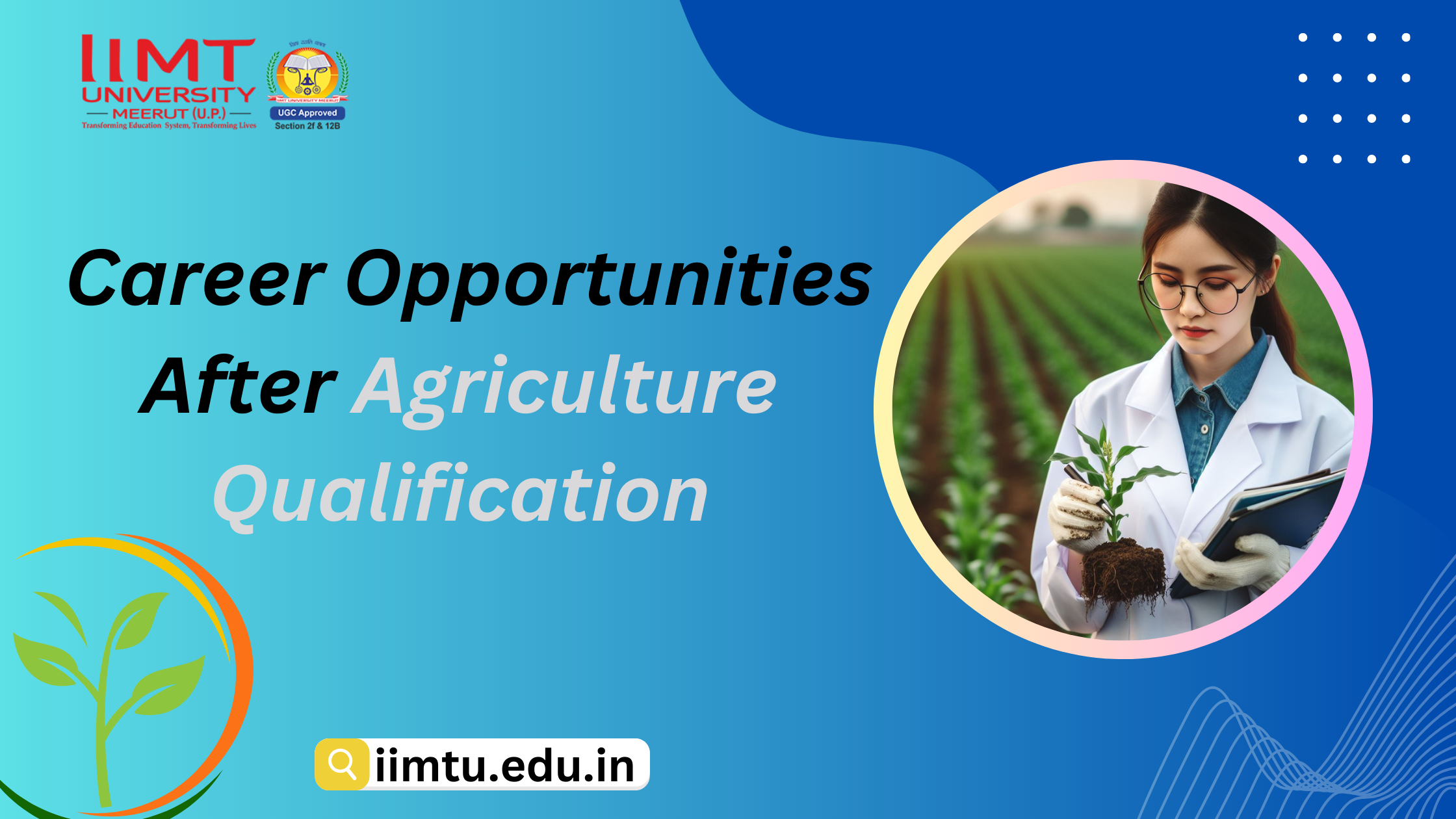Career Opportunities After Agriculture Qualification
 After completing an agriculture qualification, individuals have a wide array of career opportunities in various sectors of the agricultural industry. Here’s a detailed exploration of the potential career paths:
After completing an agriculture qualification, individuals have a wide array of career opportunities in various sectors of the agricultural industry. Here’s a detailed exploration of the potential career paths:
Agricultural Scientist
As an agricultural scientist, you can conduct research to improve crop yields, develop new farming methods, and enhance agricultural sustainability. Specializations may include crop science, soil science, agricultural economics, or agricultural engineering.
Farm Manager
Farm managers oversee daily operations on farms, including crop production, livestock management, and farm budgeting. They ensure efficient farm practices and may be responsible for implementing sustainable farming techniques.
Agronomist
Agronomists study plant genetics, soil management, and crop production techniques. They provide expertise to farmers on optimizing yields, controlling pests and diseases, and implementing sustainable farming practices.
Agribusiness Consultant
Agribusiness consultants advise farmers and agricultural businesses on marketing strategies, financial planning, supply chain management, and business development. They help optimize farm profitability and sustainability.
Livestock Manager
Livestock managers oversee the care and breeding of livestock such as cattle, poultry, and sheep. They ensure animal health and welfare, manage breeding programs, and oversee production operations.
Agricultural Economist
Agricultural economists analyze economic data related to agriculture, including market trends, trade policies, and farm financial performance. They provide insights to policymakers, businesses, and farmers to optimize agricultural practices.
Agricultural Extension Officer
Extension officers work directly with farmers, providing education and outreach on modern farming techniques, new technologies, and government agricultural programs. They facilitate knowledge transfer to enhance productivity and sustainability.
Food Safety Inspector
Food safety inspectors ensure that agricultural products meet quality and safety standards throughout the production and distribution chain. They play a critical role in safeguarding public health and maintaining consumer confidence in agricultural products.
Environmental Specialist
With a background in agriculture, individuals can specialize in environmental conservation, focusing on sustainable land management, biodiversity conservation, water resource management, and climate change adaptation.
Researcher in Agricultural Institutions
Graduates with agriculture qualifications can pursue research positions in agricultural institutions, universities, or research organizations. They contribute to advancing agricultural knowledge and innovation through scientific research.
Entrepreneur in Agribusiness
Agriculture graduates can start their own agribusiness ventures, such as organic farming operations, agricultural supply companies, agro-tourism ventures, or food processing startups. Entrepreneurship allows individuals to innovate and contribute to the agricultural value chain.
Opportunities in the Private Sector
In addition to government and research organizations, agriculture graduates have ample opportunities in the private sector:
- Agri-tech Startups: Join innovative startups focused on agricultural technology, precision farming, and agri-analytics.
- Agrochemical Companies: Work with companies producing fertilizers, pesticides, and crop protection products.
- Food Processing Industries: Contribute to food processing and value-added product development in industries such as dairy, meat, and cereal processing.
- Agribusiness Companies: Explore roles in large agribusiness companies involved in seed production, farm equipment manufacturing, and agricultural inputs distribution.
- Supply Chain Management: Pursue careers in supply chain management with agricultural commodity trading companies or logistics firms specializing in agricultural products.
Frequently Asked Questions (FAQ) about Careers in Agriculture
Q1: What skills are essential for a successful career in agriculture?
- Essential skills include problem-solving, critical thinking, communication, teamwork, and a strong understanding of agricultural sciences and practices.
Q2: How can I prepare for a career in agriculture while studying?
- Engage in internships, volunteer work, or part-time jobs in agricultural settings to gain practical experience. Network with professionals and participate in industry events and workshops.
Q3: What is the job outlook for careers in agriculture?
- The job outlook is promising, with growing demand for agricultural professionals due to global food security challenges, sustainability concerns, and technological advancements in agriculture.
Q4: What are the salary expectations in agricultural careers?
- Salaries vary based on factors such as job role, experience, location, and employer. Agricultural scientists, managers, and consultants generally earn competitive salaries.
Q5: How can I specialize within the field of agriculture?
- Consider pursuing advanced studies or certifications in specialized areas such as precision agriculture, agribusiness management, sustainable agriculture, or agricultural engineering.
.
To know more – Visit our Website
For admission related queries – Click here or call us @ 9997089170
Author :- Davesh

